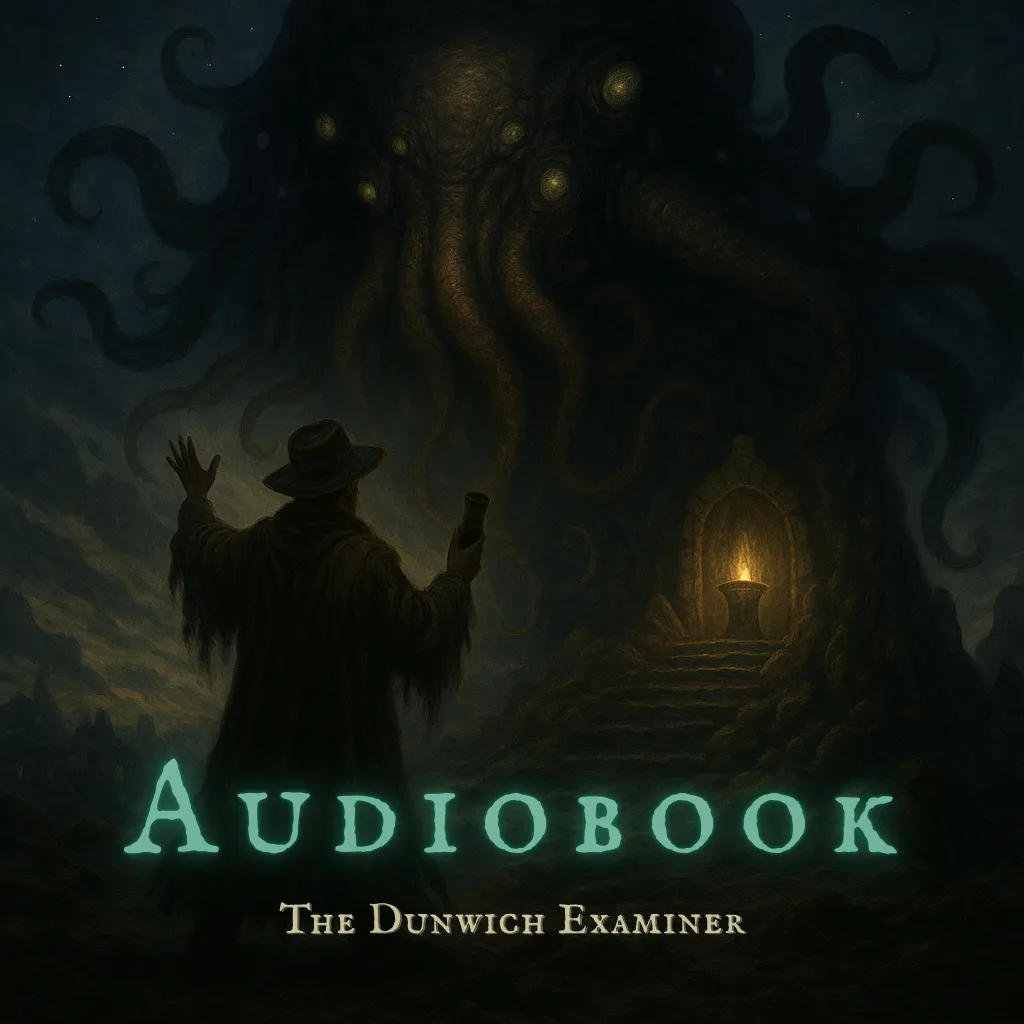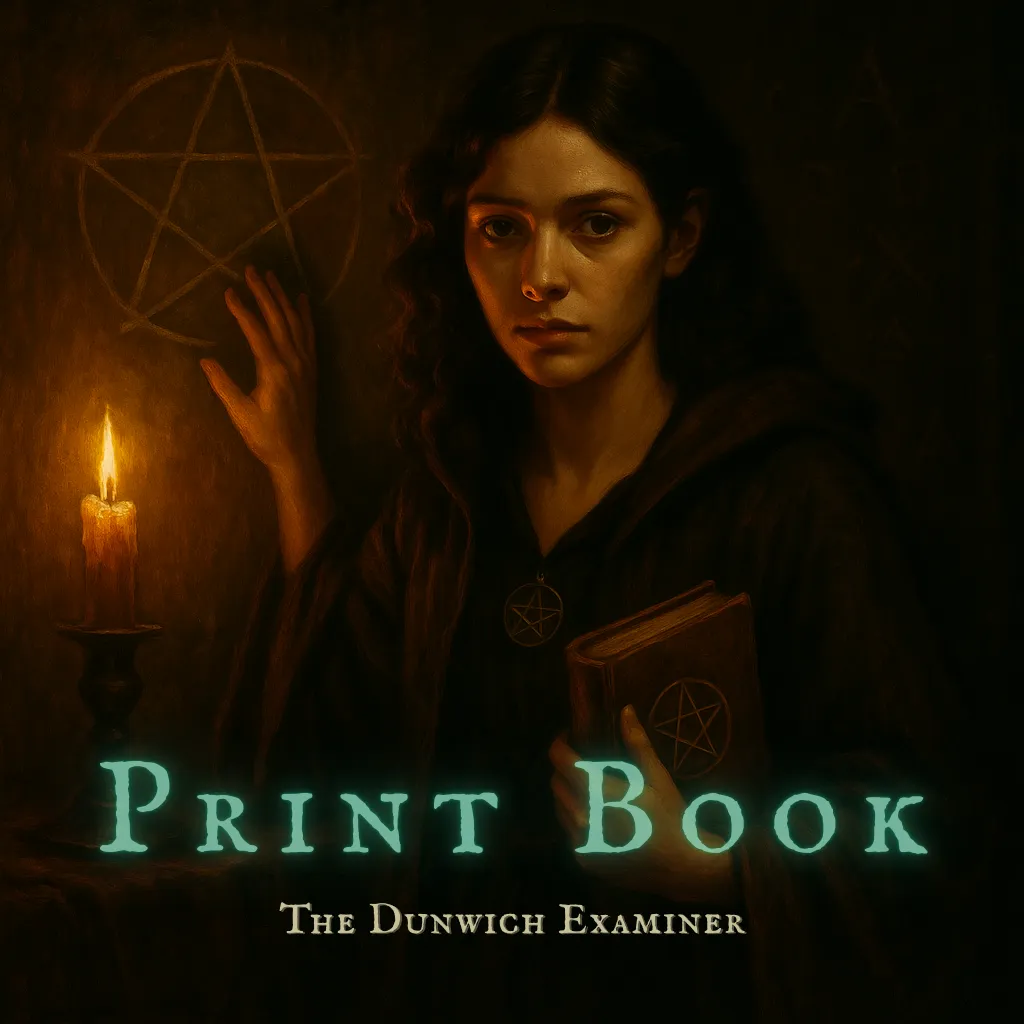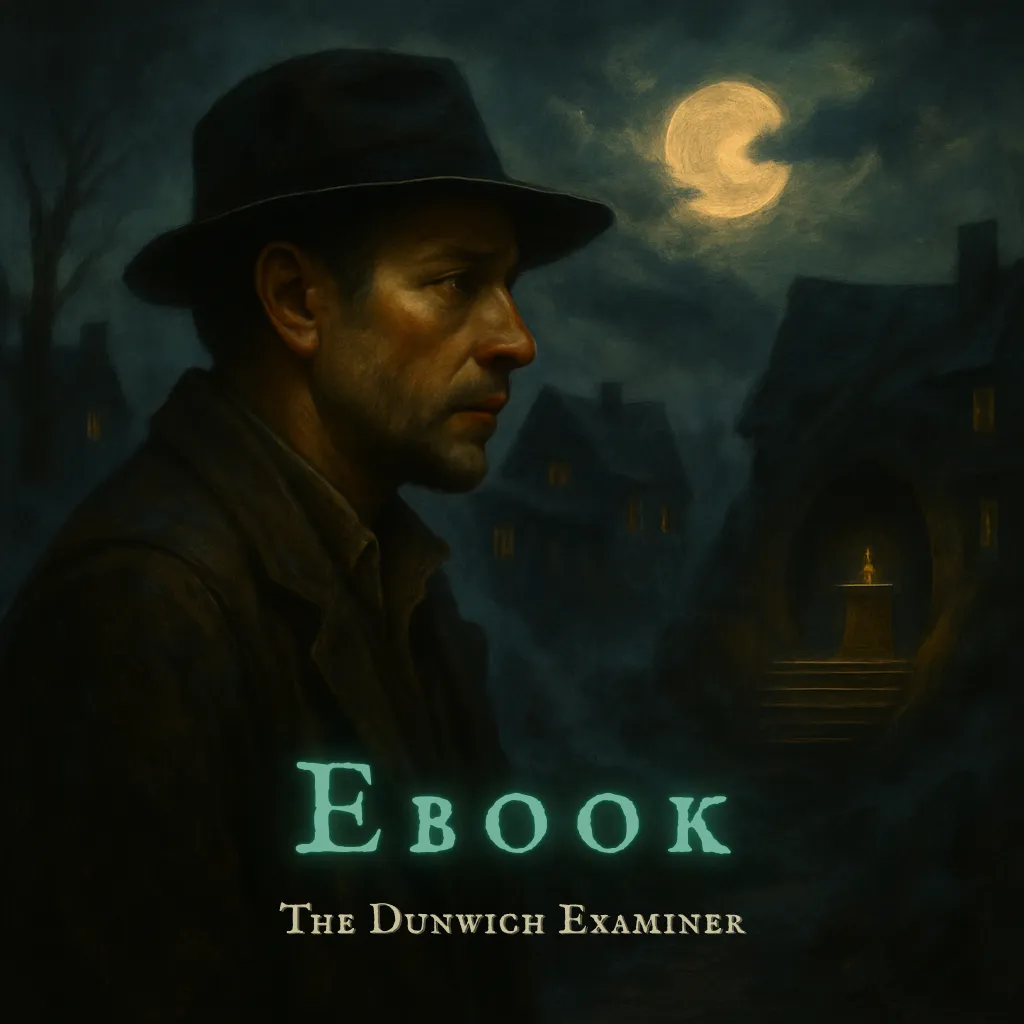Investigator of the Unnameable
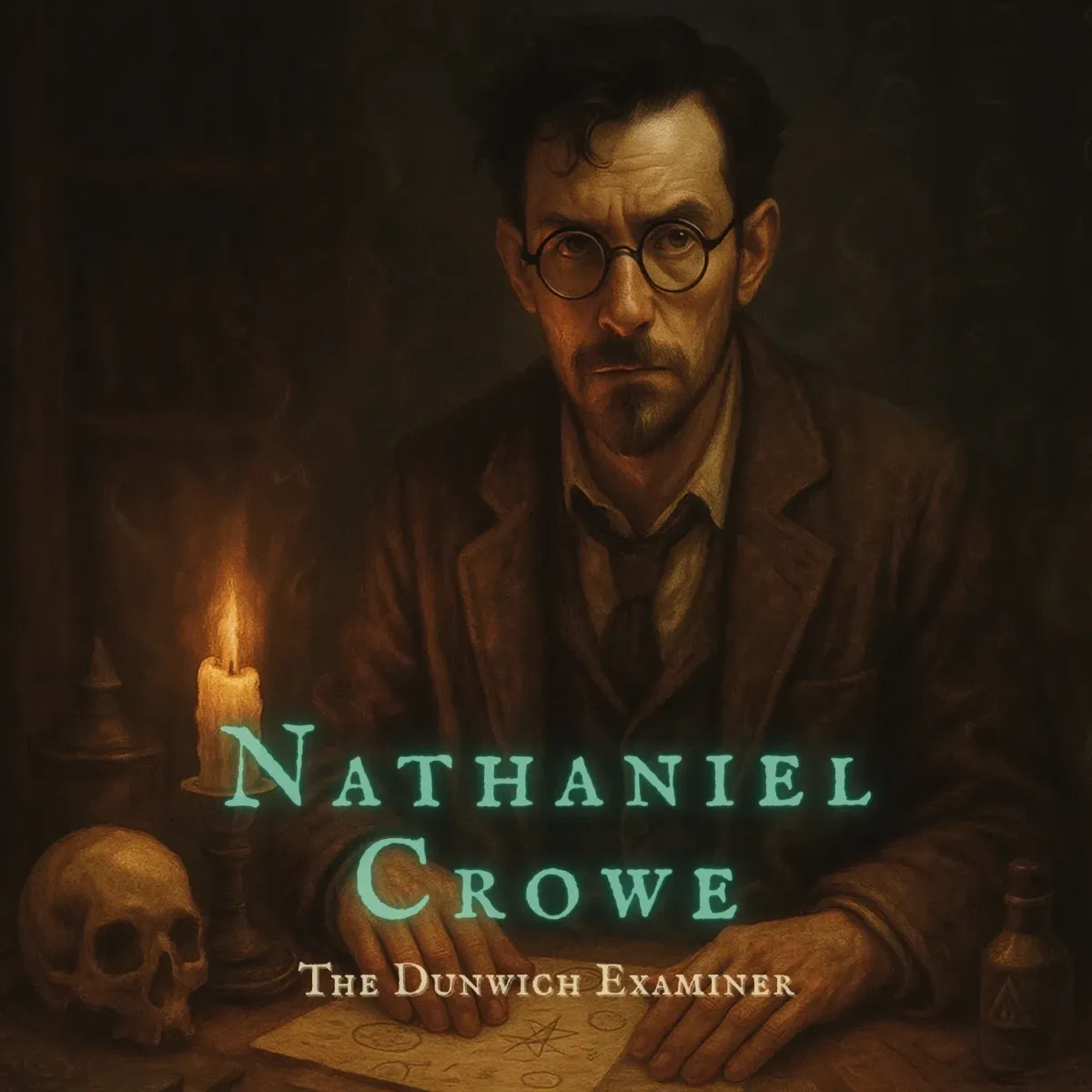
Where Knowledge Fears to Tread
Nathaniel Crowe is an obscure examiner of the inexplicable, not a seeker of applause or notoriety but a man who audits wonder. Known to few, remembered by fewer, he treats the supernatural not as spectacle but as an error in the ledger of the world—an entry that demands examination, indexing, and, if possible, correction.
Crowe’s professional life begins in his modest second-floor walk-up off West Pickman Street, where the gas-lamp holds its small perimeter against a larger dark. Behind a shuttered haberdashery, a narrow stair leads to his office: chalk-scrawled walls, battered desk, phonograph cylinders, bound case ledgers, bottles with careful labels, and a tin of matches that is always full. Visitors note the stillness: sound is not endured here but deployed. He strikes the match, sets the candle, and the room becomes an instrument.
His investigations begin with what can be verified: names spelled twice, times entered twice, distances walked and walked again. He distrusts eager testimony. He trusts the stubborn datum: the nail that shouldn’t have been there, the stone that keeps turning up. From this foundation he proceeds by a dual grammar of scholarship and rite. A phrase in a dead dialect may dictate the alignment of a chair. A paper-weight may prove to be a ward. The prayer, if it may be called so, is always addressed to method.
The results of such fieldwork are not trophies. They are proofs: fragments of transcript, smudged slate rubbings, maps amended in pencil, silence captured after a phonograph finishes. All are filed under dates, cross-referenced to weight, and, when necessary, marked with warnings that resemble arithmetic. It is this archive that he presents in the ledger of cases under the auspices of The Dunwich Examiner.
The ledger opens with The Shunned Cellar, an investigation which began as an inventory of a failed inheritance and revealed a room unwilling to remain still. The floor held more footsteps than the living record. The air remembered names wrong. Crowe did not shut the door. He corrected it. And so the ledger continues. Additional files exist under restricted access, awaiting review for public release. Those who watch the edge of this work keep their names with the Examiner.
At some point the silent exchange began: sealed parcels sent to Emory Holt, containing field journals, glass slides, wax cylinders, artifacts defying classification. Some arrived by courier, others by post, one simply placed on the steps of the Barrow Street Annex with no sender. Each carried a ledger entry in Crowe’s hand: “For consolidation.” Under Holt’s custodianship these dispatches revealed recurrence—motifs that repeated across counties, decades, and names. Where Crowe recorded isolated anomalies, Holt mapped them into pattern. The deliveries have not ceased—though Crowe’s return address no longer holds—and with each arrival the record deepens, the warning clarifies, and the burden grows.
Crowe’s methods are almost liturgical. He lights a single candle. He recites a brief Latin line borrowed from his mother’s hand. He pauses to listen for the room’s answer. He is neither credulous nor skeptical. He is exact. He believes a pattern precedes belief and that courage, if anywhere, belongs to the sequence of steps carried out correctly when one is afraid. He will change a plan rather than raise his voice. He will retreat rather than guess.
The cost of knowing is written in the margins where applause cannot reach. Sleep narrows. Memory arranges itself by cases rather than years. Certain tunes are counted, not heard. There are streets he no longer walks and words he no longer says—less from fear than a wish to keep the world steady. Crowe asks not for sympathy, only for accuracy. He would wish his burden to remain private. But accuracy has its own appetite, and so we record the toll alongside the result, so that the account may stand complete.
A Word to the Witness
If you have read this far, you are already participating. Inquiry is not a spectacle. It is a compact between those who look and what resists being seen. Read with care. Doubt cleanly. When a page asks you to pause, pause. When a warning asks you to stop, stop.
What follows are not stories in the comfortable sense. They are records. Treat them as such, and they may yet treat you kindly.
Retrieve Your Copy from the Stacks
The first account, The Shunned Cellar, has been cleared for public access by The Dunwich Examiner and filed to the Chronicle Archive. Further cases will follow as the record permits.
Proceed to the Archive, retrieve your copy from the stacks, and keep your name with The Dunwich Dispatch to be told when the next file opens. The ledger remains unfinished. Your attention helps hold it to the line.
Those who wish to follow the work may do so through the official record below.
Inspired by the public domain works of H.P. Lovecraft.
Original Content © The Dunwich Examiner 2026
Subscriptions Coming Soon!
Three Paths. One Fate. Enter Where You Dare!
Esoteric Initiate – $4.99/month
Something in the footnotes of that forbidden tome spoke to you. You’ve begun the first rituals—quietly, at night, when no one is watching. The ink stains will not wash off.
Benefits for Initiates:
• Newly unearthed chronicle each month
• The complete written chronicle
• A fun literary experience
Use the Get Notified button above to receive an email when the membership system is available.
Thank you for your support!
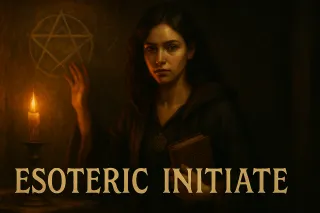
Servant of Dagon – $8.99/month
Lorem ipsum dolor sit amet, consectetur adipisicing elit. Autem dolore, alias, numquam enim ab voluptate id quam harum ducimus cupiditate similique quisquam et deserunt, recusandae.
Benefits for Initiates:
• Newly unearthed chronicle each month
• The complete audio chronicle
• A fun literary experience
Use the Get Notified button above to receive an email when the membership system is available.
Thank you for your support!
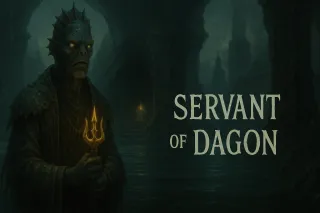
Voice of Azathoth – $12.99/month
You are the whisper in the ink. The mind behind the madness. You no longer support the tale—you fuel it. Reality is thinner around you.
Benefits for Voices:
• Newly unearthed chronicle each month
• The written and audio chronicle
• Unique artifacts with each chronicle
• A fun and immersive literary experience
Use the Get Notified button above to receive an email when the membership system is available.
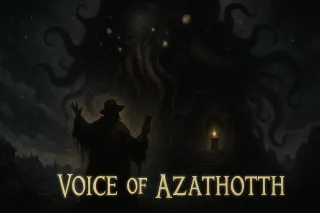
Subscriptions Coming Soon!
Three Paths. One Fate.
Enter Where You Dare!


Initiate Benefits
New chronicle each month
The complete written chronicle
A fun literary experience
Subscribe Monthly for $4.99


Servant Benefits
New chronicle each month
The complete audio chronicle
An immersive literary experience
Subscribe Monthly for $8.99


Voice Benefits
New chronicle each month
The written and audio chronicle
A fun & immersive literary experience
Subscribe Monthly for $12.99
Support the Chronicles, Sustain the Horror
These chronicles depend on brave patrons like yourself—those willing to keep the ink flowing and the stories alive. Your membership fuels this dark and vital work, allowing The Arkham Examiner to continue transcribing the accounts of Nathaniel Crowe, stories that bind reality to the void.
Select your tier above to join the effort. The doors will creak open, the missives will find you, and the truths will be revealed.
May curiosity guide you,
—Emory Holt, Archivist, The Arkham Examiner
